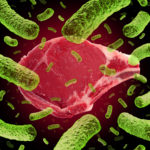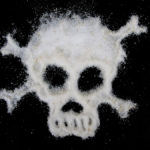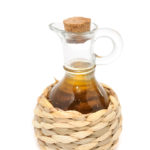By David Blyweiss, M.D., Advanced Natural Wellness
February 12, 2020
Last night was my red meat night. I made a delicious roast with red wine, bay leaves, and seasonings… then topped it with a huge heap of organic carrots, onions, and celery.
Honestly, it was mostly vegetables, but that’s a good way to keep my microbiome healthy and working at full tilt.
So yes, I tell my patients it is okay for them to have some red meat – provided it’s from a clean source and only accounts for about one meal a week. In fact, meat in general should only be about 13% of your entire diet.
Many people are surprised I allow this because they are so scared of eating too much saturated fat. But really, there are other so-called “healthy” foods that will do more damage to your health than a little saturated fat ever would. And they’re foods that you may be eating every day!
So, let me walk you through three of the worst offenders…
Deadly Food #1: Vegetable Oils and Margarines
For example, when everyone turned away from lard and animal fat for cooking, they switched to vegetable oils and margarines as a healthy alternative. Well, this ranks high as one of the most disastrous turn of events in the history of food.
Open your arteries, improve blood flow for a new health miracle...
Did you know your circulatory system has over 60,000 miles of arteries, veins and other blood vessels, if stretched end to end?
But as you age, your blood vessels undergo changes, which may cause them to stiffen, thicken and get clogged.
GOOD NEWS! Doctors have now identified a “Miracle Molecule” inside your arteries that helps OPEN your arteries and IMPROVE blood flow.
It’s what Dr. Valentin Fuster calls it, "One of the most important discoveries in the history of cardiovascular medicine."To you, that means...
- Healthy blood pressure
- Sharper mind and memory
- Skyrocketing energy and muscular strength
- Increased pleasure and passion in the bedroom
- Improved circulation to every cell and organ in your body
Go here to discover a new natural way to significantly boost the levels of this miracle molecule in YOUR body NOW!
First off, most cooking oils and margarines are high on omega-6 fatty acids. And while it’s true that our body’s need omega-6’s, we’re getting way too many of them these days – somewhere around 20 times more than is healthy.
When we get too many of them, they promote inflammation. And inflammation is an underlying cause of most chronic disease today.
Secondly, these oils are rancid. They go through processes that oxidize the fat in the oil and turn it rancid. You won’t know this, because they add compounds to the oil and steam-clean it to remove the nasty odors. Your body has no use for rancid food that contains all sorts of additives and preservatives.
Third, most cooking oils are made from genetically modified crops. The crops are designed to be “Roundup-ready.” This means the oils made from them are loaded with glyphosate, the main chemical found in this herbicide.
In addition to being a poison, glyphosate destroys healthy gut bacteria, damages DNA, messes with your hormones and disrupts your body’s ability to detoxify itself.
What you can do: My favorite vegetable oil is cold-pressed extra virgin olive oil. It’s loaded with polyphenol antioxidants that can help protect against heart disease, diabetes and Alzheimer’s. Other good choices of oil include cold-pressed, organic and unrefined coconut, sesame, palm fruit, avocado and sesame seed oil. If you can find “extra virgin” versions, it’s all the better.
Deadly Food #2: Not All Fish is Healthy Fish
Everybody knows that fish is good for them. There’s no question that the healthy omega-3 fatty acids found in fish protects your heart and brain, slashes inflammation and keeps you looking and feeling younger as you age.
But not all fish is created equal. In fact, farm-raised fish is decidedly not good for you. These fish contain all sorts of deadly chemicals, like polychlorinated biphenyls (PCBs).
Farm-raised salmon is, by far, the worst. This type of salmon accounts for more than two-thirds of salmon across the globe, with farm raised tilapia just as unhealthy.
The World's Quickest Solution for Ending Prostate and Urinary Misery
This has recently been revealed to be one of the only real breakthroughs in prostate health.
The seeds of a strange fruit (sometimes called "Chinese Apples") hold powerful phytonutrients that are a revolution in prostate health.
In fact, UCLA and Veterans Administration research have now proved this to be true.
Not only that, but it may be the worlds quickest solution for ending prostate misery.
Simply stated, these phytonutrients represent a huge step beyond beta sitosterol, saw palmetto, and other phytosterols alone.
Simply click HERE if you want to have fast prostate relief...restful, uninterrupted sleep...no more constant "urges to go"...enhanced virility...and optimal prostate support for life.
The health of these salmon is so bad that that about half of them die before they even get to harvest. And those that do survive contain enormous amounts of PCBs – up to 16 times more than wild-caught.
These chemicals build up in the fatty tissue of the fish. So whenever you eat a piece of fatty farm-raised salmon or other fish that sounds healthy, you’re actually getting a big dose of PCBs.
As these accumulate in your body, they can open you up to liver cancer, thyroid problems, a weakened immune response and hormone imbalances. There is also evidence they increase the risk of type 2 diabetes, obesity and high blood pressure.
What you can do: Enjoy fish from wild-caught sources. The healthiest are smaller species like Alaskan salmon, Pacific halibut, mackerel, sardines, herring, rainbow trout and flounder.
Try some delicious nova salmon with lactose-free cream cheese on a hollowed out organic poppy seed bagel. It’s my favorite. I also like scallops, shrimp, crab and lobster… again all wild caught.
Deadly Food #3: What to Eat Instead of Rice
If you’re a rice-lover, you probably gave up white rice a long time ago. Chances are you’re eating some of the more exotic forms… wild, basmati, long grain or another “healthier” version of rice.
Well, I hate to tell you this, but there is no healthy form of rice. All of them contain levels of inorganic arsenic dependent on the arsenic levels in the ground water where they’re grown.
In fact, when Consumer Reports analyzed a variety of rice products, they found inorganic arsenic in all 32 of the rice that was tested. All of them. The rice came from all over the world, including the U.S., India and Thailand.
Now, you probably already know that arsenic is a deadly poison. And the EPA classifies it as a “known human carcinogen”. This means eating too much rice is likely to increase your risk of developing some form of cancer.
Additionally, long-term exposure to arsenic is linked to abdominal issues, abnormal heart rhythm, kidney damage and a decrease in red and white blood cells.
What you can do: Quinoa is a great replacement for rice. It has negligible levels of inorganic arsenic, and it’s gluten-free to boot. Plus, it can be used in most rice recipes without altering the integrity of the dish.
Try mixing together red and white quinoa along with sautéed or roasted vegetables. It makes a delicious dish.
SOURCES:
Patterson E, et al. Health implications of high dietary omega-6 polyunsaturated Fatty acids. J Nutr Metab. 2012;2012:539426.
Koller VJ, et al. Cytotoxic and DNA-damaging properties of glyphosate and Roundup in human-derived buccal epithelial cells. Arch Toxicol. 2012 May;86(5):805-13
Gasnier C. et al. Glyphosate-based herbicides are toxic and endocrine disruptors in human cell lines. Toxicology. (2009) 262: 184–191.
Guasch-Ferré M, et al. Olive oil intake and risk of cardiovascular disease and mortality in the PREDIMED Study. BMC Med. 2014 May 13;12:78.
Guasch-Ferré M, et al. Olive oil consumption and risk of type 2 diabetes in US women. Am J Clin Nutr. 2015 Aug;102(2):479-86.
Abuznait AH, et al. Olive-oil-derived oleocanthal enhances β-amyloid clearance as a potential neuroprotective mechanism against Alzheimer’s disease: in vitro and in vivo studies. ACS Chem Neurosci. 2013 Jun 19;4(6):973-82.
PCBs in farmed salmon. Environmental Working Group. Jul 2003.
Crinnion WJ. The role of persistent organic pollutants in the worldwide epidemic of type 2 diabetes mellitus and the possible connection to Farmed Atlantic Salmon (Salmo salar). Altern Med Rev. 2011 Dec;16(4):301-13.
Crinnion WJ. Polychlorinated biphenyls: persistent pollutants with immunological, neurological, and endocrinological consequences. Altern Med Rev. 2011 Mar;16(1):5-13.
Arsenic in Your Food. Consumer Reports. Nov 2012.







